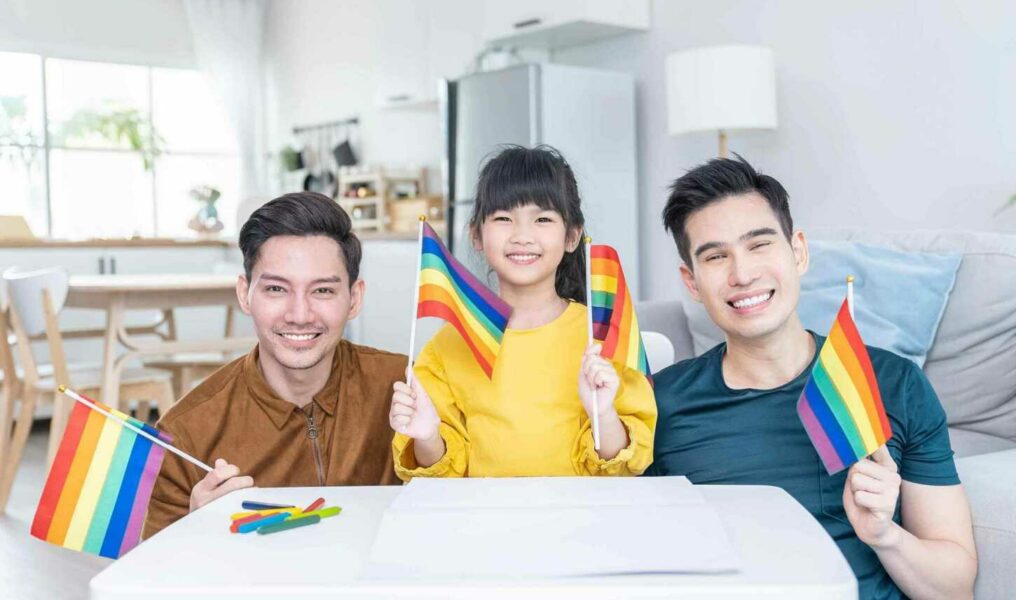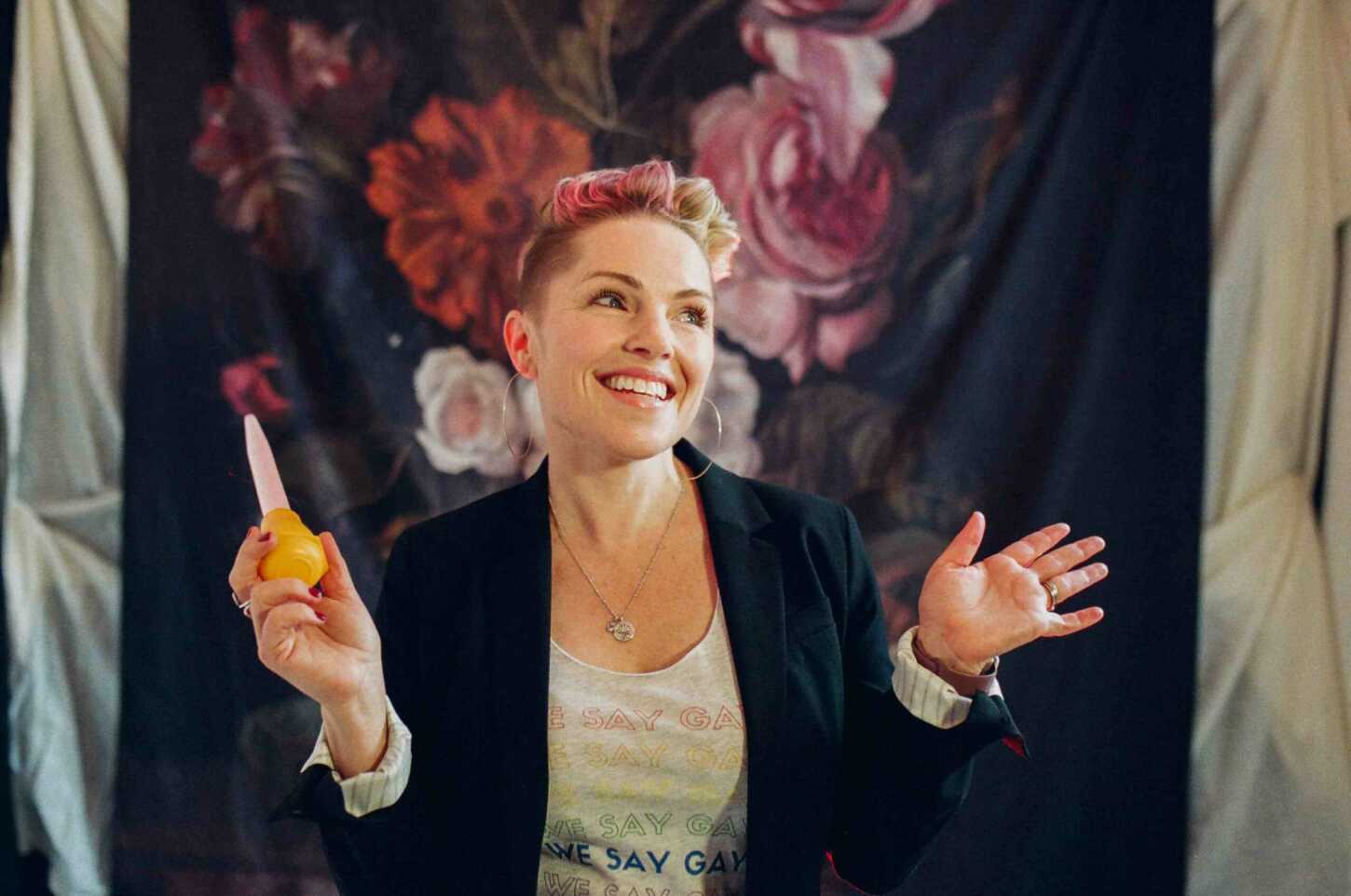The Queer Family Podcast' Showcases Beautiful, Unique Stories of LGBTQ+ Parenthood

When Jaimie Kelton launched a podcast for queer families in 2018, she thought, “This would be a fun side project.” Now, 11 seasons later, she’s interviewed hundreds of queer families, published a book based on many of their stories, and has just rebranded the podcast to emphasize the range of queer family experiences the show covers.
Kelton said that she and her original co-host Robin Hopkins, both white lesbian moms and actors, “had no idea it would take off the way it did. These stories needed to be told; people wanted to hear these stories and people wanted to tell their stories.”
Hopkins has gone on to other ventures, and Kelton has launched the show’s new season under a new name, “The Queer Family Podcast,” with the encouragement of actor Rosie O'Donnell and Black trans activist and writer Tiq Milan, both interviewees and fans of the show. Kelton explained that the original name, “If These Ovaries Could Talk,” no longer fit because “We weren't just telling female stories anymore. We were telling trans stories [and] nonbinary stories.”

Kelton is also expanding diversity among the show’s hosts. E Bradshaw, a nonbinary Black parent, was co-host for one season, and now Kelton is bringing in interviewees from previous episodes as guest cohosts, “from all different backgrounds, all different sexualities, all different genders,” she said.
Kelton wants to keep telling queer family stories because queer families “are not represented in mainstream media like we should be.” She added, “What we see in mainstream media is not the truth of the world around us, and that needs to change. The point is to highlight, normalize and uplift queer families and queer people in general so that the rest of the world can see that we're just like them, except we work a lot harder to make our freakin’ families.”
Reaching a mainstream audience has been challenging, though. While she’s had some straight allies tell her things like, “I didn't know everything that went into [queer family building] and I'm learning so much,” she still feels that the podcast isn’t where she wants it to be in the parenting podcast world because the show gets categorized as “queer first and then parenting,” Kelton said. She’s even had conversations with television producers who have told her, “This is just such a niche topic,” and “Our audience is just not ready for this yet.”
Her frustration is evident in her retort: “What do you mean? Look at the world around you!”
She is, however, having a significant impact on her LGBTQ + listeners, many of whom have used the podcast to help them figure out their journeys to parenthood. Kelton explained, “There are so many decisions when it comes to queer family making. We have to start from a place of intention way before we even start the process.” She related that she often gets feedback from listeners saying, “I didn't know how to do this” or “I didn't even know this was an option for me. Then I heard these stories and I slowly was able to see this is an option and this is the route that I want to take.”
She also loves that there are queer parents out there “breaking the mold,” because, she said, “We don't fit the mold to begin with. We feel this freedom to bust outside the box and make our families completely unique in this world of very heteronormative families.”
She observed, “There are folks who are not only breaking barriers with their parenting, with the way they build their family and how they show up as families, [but] they're also working to change systems that are not set up for us.” One couple she interviewed, for example, a cisgender and a nonbinary parent, “experienced some serious microaggressions at their fertility clinic.” Instead of getting angry and suing, “They worked with that clinic and changed all of it from the inside out, the whole structure,” including making the clinic’s forms more inclusive.
“There's a lot of us out there who are working really hard to change these systems, chiseling away one little clinic at a time, but it makes a difference. It's really inspiring to hear these stories of folks who are working to make it better for the LGBTQIA+ community,” she said.
The current season of the show brings even more stories about the wide variety of queer families, including one guest who was conceived in the 1980s by gay moms and is now a queer mom herself, with children via fostering, adoption and being in a blended family with her partner, who has a biological child. Another episode features a teen girl who comes in with her gay mother to talk about what it's like being raised by a gay mom. “It's really fun to get that teenage perspective and learn that the kids really are all right,” Kelton said. Other episodes feature international guests and others from across the LGBTQ+ spectrum.
"Everybody's story is so beautiful and so unique,” she asserted. “That's the beauty of this show. It just shows the humanity behind all of our journeys and all of our families.”
Listen to “The Queer Family Podcast” wherever podcasts are found.









